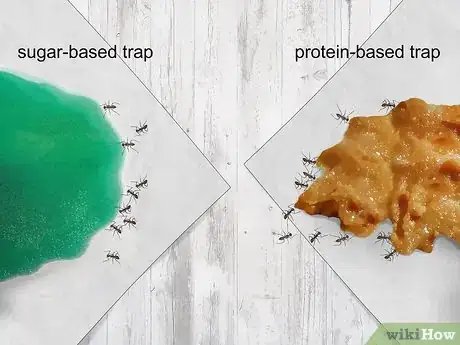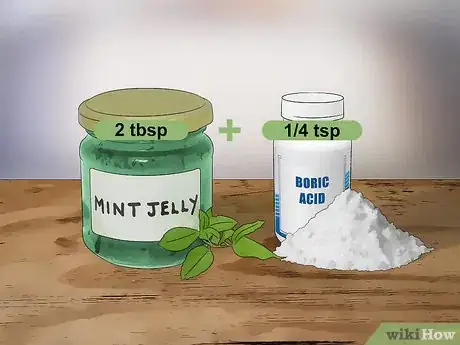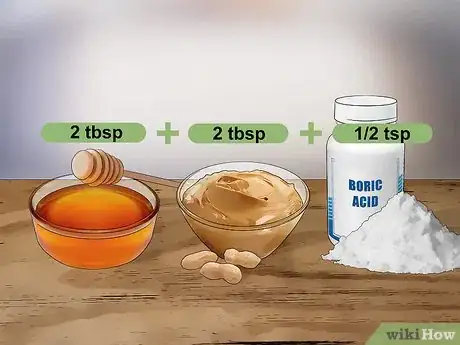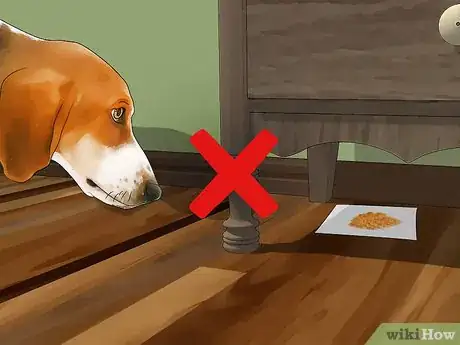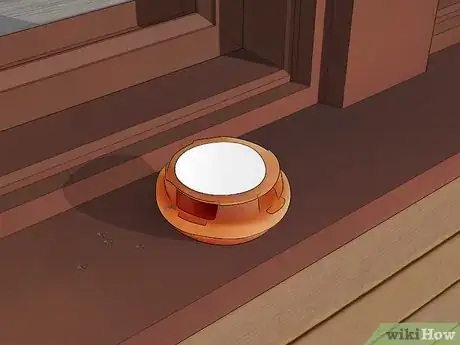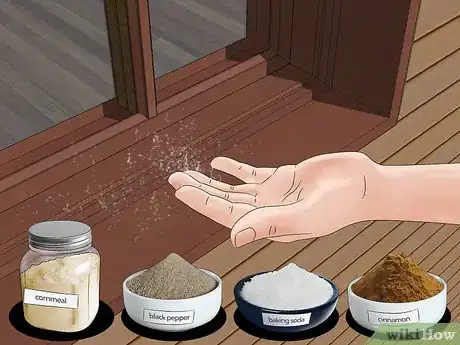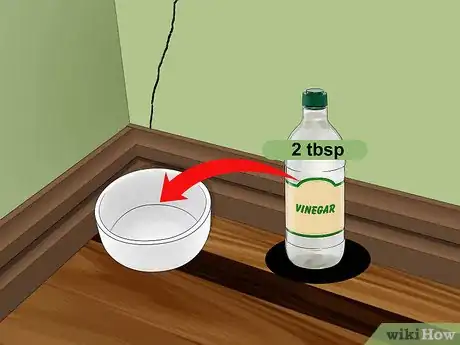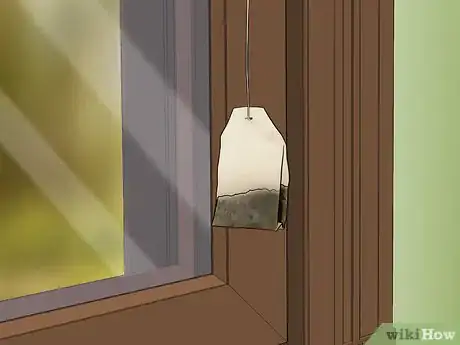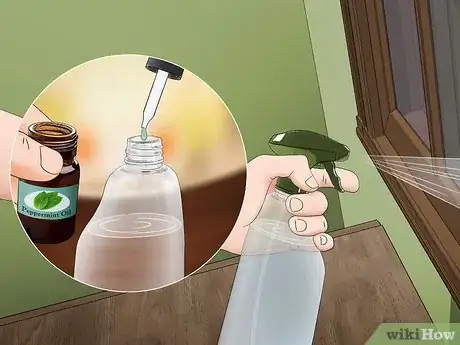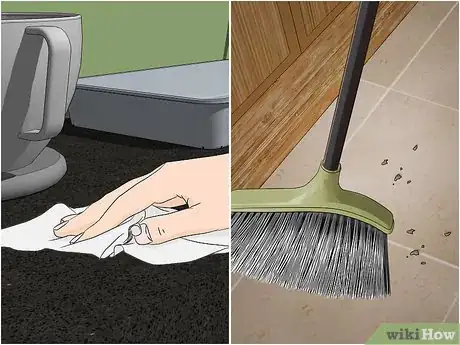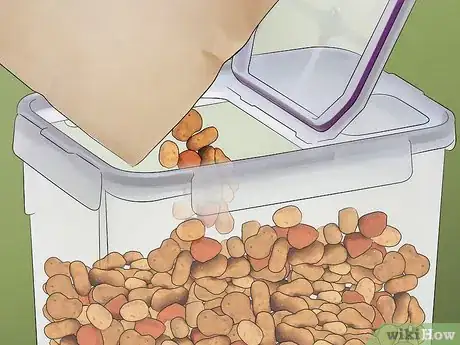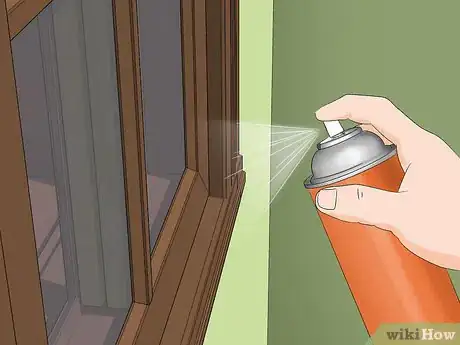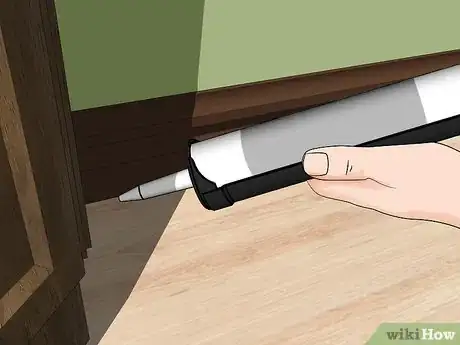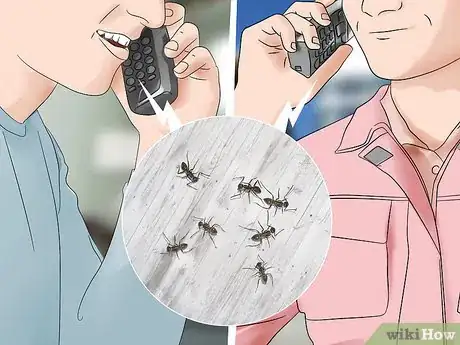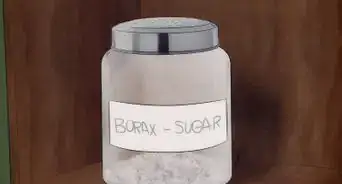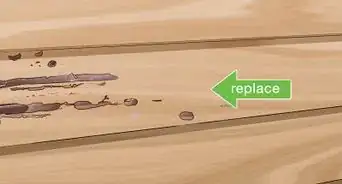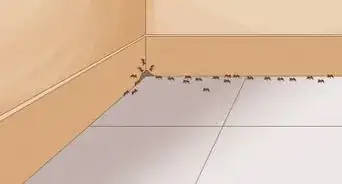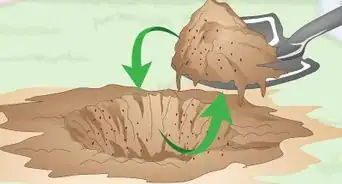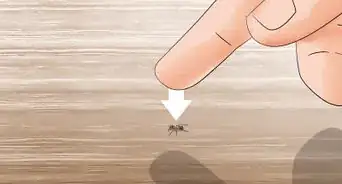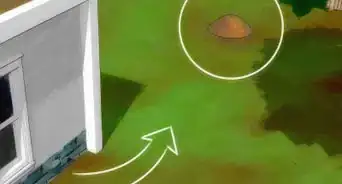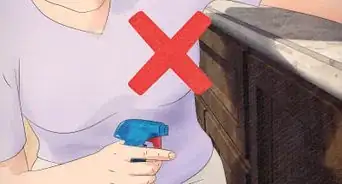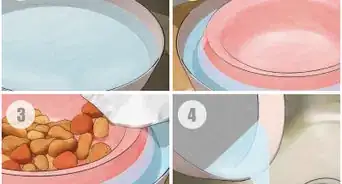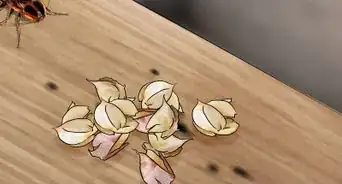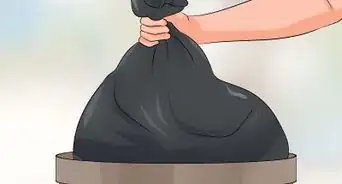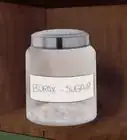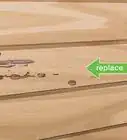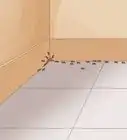This article was co-authored by Kevin Carrillo. Kevin Carrillo is a Pest Control Specialist and the Senior Project Manager for MMPC, a pest control service and certified Minority-owned Business Enterprise (MBE) based in the New York City area. MMPC is certified by the industry’s leading codes and practices, including the National Pest Management Association (NPMA), QualityPro, GreenPro, and The New York Pest Management Association (NYPMA). MMPC's work has been featured in CNN, NPR, and ABC News.
There are 13 references cited in this article, which can be found at the bottom of the page.
This article has been viewed 15,392 times.
There are many options for getting rid of odorous ants. You could use homemade or store-bough traps and bait. Alternately, you could use strongly scented essential oils or powdered herbs and spices to discourage odorous ants from entering your home. Target both the odorous ants’ entry points and their trails. Work to seal cracks and gaps where ants might be entering your home, and consider hiring an exterminator if you continue to have trouble getting rid of odorous ants.
Steps
Using Ant Traps
-
1Use both sugar and protein-based ant traps. Sugar-based traps use sugar to attract ants. Protein-based traps use a protein source (usually combined with a sugar source) to attract ants. When dealing the odorous ants, the best option is to use a mixture of both sugar and protein-based ant traps.[1]
-
2Make a sugar-based trap. Mix two tablespoons of mint jelly and 1/4 teaspoon of boric acid powder. Place a dollop of the mixture on a small piece of wax paper and place the trap in an area with a high volume of odorous ant traffic. Place another trap near the entrances the ants are using to come into the house.[2]
- If you don’t have mint jelly, you could use another jelly as long as it is not sugar-free.
- You can obtain boric acid at your local pharmacy or hardware store.
- After a few days, the ants will no longer be interested in the sugar-based trap. Discard old traps and replace them with a new batch every few days.
Advertisement -
3Make a protein-based trap. Since odorous ants are also attracted to protein or grease-based traps, place a protein-based trap alongside each sugar-based trap. You can easily make a protein-based trap by mixing two tablespoons of honey, two tablespoons of peanut butter, and 1/2 teaspoon of boric acid powder. Just as you did with the sugar-based trap, scoop a bit of the bait on some wax paper and leave it near the odorous ants’ points of entry.[3]
- Replace trap every other day or so, since it will not be appealing to the ants after it dries up.
-
4Use caution with homemade bait traps. If you have pets or young children at home, keep a baby gate between the ant bait and your child or pet. Store the powdered boric acid on a high shelf where your pet or child cannot access it.[4]
-
5Buy ant traps.[5] If you don’t have the appropriate materials on hand to craft an ant trap of your own, there are plenty of options available at your local big box or grocery store. Many ant traps are meant to be used against specific ant species, so look for one that is designed to be most effective against odorous ants.[6]
- While the exact directions for use vary according to manufacturer, you can generally snap off one of the ant traps from the packet and place it near the ants’ point of entry or their trail.
- Consult manufacturer instructions before use.
Discouraging Ants With Unpleasant Flavors and Scents
-
1Sprinkle a powder barrier in front of the ants’ point of entry. Once you’ve identified the point at which the ants are entering your home, there are many substances that you can use to discourage them from doing so. For instance, sprinkling a thin line of salt or talcum powder across the crack where the ants are coming in can force them to abandon that particular area.[7] Other powdered products that might help include:
- baby powder
- cornmeal
- black pepper
- baking soda[8]
- cinnamon
- chalk powder
- diatomaceous earth
- dried mint
-
2Apply a scented liquid to the area where the ants are.[9] Ants are averse to several strong scents, including vinegar, perfume, and lemon juice. Fill a small ramekin with one or two tablespoons of one of these products. Place it near the area where the ants are most active. Place another ramekin of the product near the crack where the ants are coming into your home.[10]
- Alternately, dab a cloth with one of these products and wipe down the areas with significant odorous ant activity.[11]
- You could also create a solution by mixing equal parts water and vinegar (or water and lemon juice), then spraying it in the area where the odorous ants are.[12]
- You could use white or apple cider vinegar.
-
3Place cucumber slices around areas with ant activity. Slice the skin off the cucumber. Use a vacuum to suck up any odorous ants that you see, then drag a few cucumber slices across the trail they were using. Place a handful of cucumber slices near the odorous ants’ entry point.[13]
- Repeat every few days, or when you see the odorous ants return.
-
4Use mint tea bags to discourage odorous ants. If you drink mint tea, place a used tea bag near the cracks or gaps through which the odorous ants are entering your home. Place a few others along odorous ant trails.
-
5Spray essential oils near areas of ant activity. Like strong-smelling lemon and vinegar, odorous ants despise many essential oils. The most effective essential oils are cinnamon, lemon, and peppermint. Simply spray a mixture of water and essential oil on the areas where the ants are entering your home and along the areas.[14]
- While the exact amount of essential oil you will need depends on the concentration of oil you’ve obtained, you can generally mix the essential oil of you choice with water in a 1:99 ratio. In other words, you might mix half a teaspoon of cinnamon essential oil with 49.5 teaspoons of water.
- Some essential oils are not appropriate for use around pets and children. Consult the manufacturer instructions on your essential oil bottle before use.
Identifying Other Ways to Get Rid of Odorous Ants
-
1Clean your house. Pay special attention to the kitchen, where odorous ants are most likely to be found scavenging for crumbs and food. Wipe down your counters with soapy water, then sweep the floor. Follow up by mopping with a soapy water mixture. Wash the dishes as soon as possible, and empty your bin regularly.[15]
- Soap will eliminate pheromone trails, disrupting odorous ants’ ability to navigate your home.
- Soap also weakens ants’ exoskeletons, causing dehydration and death.
-
2Make food inaccessible to the ants.[16] Food left out on counters or in the sink will attract odorous ants. When preparing food, use what you need, then replace it immediately in the fridge. Use airtight containers or resealable bags for uneaten crackers, desserts, and breads.[17]
- If you have a large amount of some foodstuff that cannot be transferred to a resealable container (a large bag of potato crisps, for instance), seal the container as well as you can and place it high on a shelf or on top of your refrigerator.
- Covering pans and plates with tinfoil will not be enough to prevent odorous ant access.
-
3Use an ant spray.[18] Aerosol ant sprays will kill odorous ants either on the spot or a short time after exposure. Instructions for use vary with the specific product you use, but generally, you can simply aim the nozzle of the can at the odorous ants or their entry point, then push down briefly on the can’s actuator (the “button” on top of the can).[19]
- Some sprays can be harmful for pets and children. Consult manufacturer directions before using an aerosol ant spray.
- If possible, obtain an ant spray designed for maximum efficacy against odorous ants.
-
4Block ants from entering your home. Trace the ant trail back to its point of origin and try to block it. For instance, if odorous ants are coming in through your window casings or a small crack beneath your kitchen counter, seal it by applying a line of caulk or an extra layer of paint to the area.[20]
-
5Consult a professional. If all your homemade and store-bought remedies have not enabled you to get rid of odorous ants, it might be time to bring in someone with more experience. Contact your local exterminator. Look for an exterminator who has dealt specifically with odorous ants. Be warned, though -- exterminators are expensive, often charging $400 to $1,000 to eliminate ants.[21]
- Most exterminators will treat odorous ants with professional-grade insecticides.
- A good exterminator will also help you identify home modifications that can prevent future odorous ant invasions.
Expert Q&A
-
QuestionHow do I keep odorous ants out of my house?
 Kevin CarrilloKevin Carrillo is a Pest Control Specialist and the Senior Project Manager for MMPC, a pest control service and certified Minority-owned Business Enterprise (MBE) based in the New York City area. MMPC is certified by the industry’s leading codes and practices, including the National Pest Management Association (NPMA), QualityPro, GreenPro, and The New York Pest Management Association (NYPMA). MMPC's work has been featured in CNN, NPR, and ABC News.
Kevin CarrilloKevin Carrillo is a Pest Control Specialist and the Senior Project Manager for MMPC, a pest control service and certified Minority-owned Business Enterprise (MBE) based in the New York City area. MMPC is certified by the industry’s leading codes and practices, including the National Pest Management Association (NPMA), QualityPro, GreenPro, and The New York Pest Management Association (NYPMA). MMPC's work has been featured in CNN, NPR, and ABC News.
MMPC, Pest Control Specialist Make sure all of your food is sealed in airtight containers and put away so ants aren't attracted to it. If you still see ants in your home, set up bait traps to kill them.
Make sure all of your food is sealed in airtight containers and put away so ants aren't attracted to it. If you still see ants in your home, set up bait traps to kill them.
References
- ↑ https://www.doyourownpestcontrol.com/odorous.htm
- ↑ https://www.thoughtco.com/how-to-make-and-use-homemade-ant-baits-1968027
- ↑ https://www.thoughtco.com/how-to-make-and-use-homemade-ant-baits-1968027
- ↑ https://www.thoughtco.com/how-to-make-and-use-homemade-ant-baits-1968027
- ↑ Kevin Carrillo. MMPC, Pest Control Specialist. Expert Interview. 22 October 2019.
- ↑ https://morningchores.com/best-ant-killer/
- ↑ https://www.angieslist.com/articles/how-get-rid-ants.htm
- ↑ http://www.naturallivingideas.com/get-rid-of-ants/
- ↑ Kevin Carrillo. MMPC, Pest Control Specialist. Expert Interview. 22 October 2019.
- ↑ https://www.angieslist.com/articles/how-get-rid-ants.htm
- ↑ https://www.hunker.com/12131814/how-to-get-rid-of-ants-with-cinnamon
- ↑ http://www.naturallivingideas.com/get-rid-of-ants/
- ↑ https://www.hunker.com/12579525/how-to-get-rid-of-ants-with-cucumbers
- ↑ http://www.naturallivingideas.com/get-rid-of-ants/
- ↑ https://www.angieslist.com/articles/how-get-rid-ants.htm
- ↑ Kevin Carrillo. MMPC, Pest Control Specialist. Expert Interview. 22 October 2019.
- ↑ https://www.angieslist.com/articles/how-get-rid-ants.htm
- ↑ Kevin Carrillo. MMPC, Pest Control Specialist. Expert Interview. 22 October 2019.
- ↑ https://morningchores.com/best-ant-killer/
- ↑ https://www.angieslist.com/articles/how-get-rid-ants.htm
- ↑ https://www.angieslist.com/articles/how-get-rid-ants.htm
About This Article
To get rid of odorous ants, sprinkle a line of baking soda, cinnamon, or black pepper in front of the area where the ants are entering your home. Alternatively, place a bowl of white vinegar, perfume, or lemon juice where the ants are most active. If you use essential oils such as lemon, cinnamon, and peppermint, spray the area with a mixture of the oil diluted in water. No matter what solution you use, make sure to clean your floors and kitchen counters on a daily basis, and store foods in airtight containers or in the refrigerator. To learn how to make your own ant trap with household staples like peanut butter and honey, read on!
